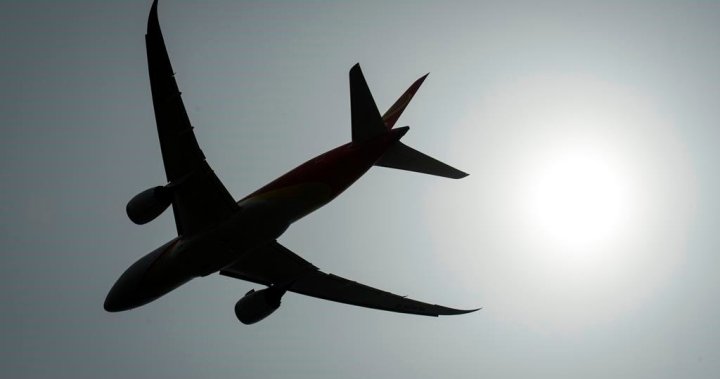
Countries with shortage of COVID-19 vaccines exempt from new U.S. travel rules: Biden
Global News
Beginning Nov. 8, most foreign, non-immigrant adults traveling to the U.S. will need to be fully vaccinated, and all travellers will need to be tested prior to boarding a flight.
Children under 18 and people from dozens of countries with a shortage of vaccines will be exempt from new rules that will require most travelers to the United States be vaccinated against COVID-19, the Biden administration announced Monday.
The government will require airlines to collect contact information on passengers regardless of whether they have been vaccinated to help with contact tracing, if that becomes necessary.
Beginning Nov. 8, foreign, non-immigrant adults traveling to the United States will need to be fully vaccinated, with only limited exceptions, and all travelers will need to be tested for the virus before boarding a plane to the U.S. There will be tightened restrictions for American and foreign citizens who are not fully vaccinated.
The new policy comes as the Biden administration moves away from restrictions that ban non-essential travel from several dozen countries — most of Europe, China, Brazil, South Africa, India and Iran — and instead focuses on classifying individuals by the risk they pose to others.
It also reflects the White House’s embrace of vaccination requirements as a tool to push more Americans to get the shots by making it inconvenient to remain unvaccinated.
Under the policy, those who are vaccinated will need to show proof of a negative COVID-19 test within three days of travel, while the unvaccinated must present a test taken within one day of travel.
Children under 18 will not be required to be fully vaccinated because of delays in making them eligible for vaccines in many places. They will still need to take a COVID-19 test unless they are 2 or younger.
Others who will be exempt from the vaccination requirement include people who participated in COVID-19 clinical trials, who had severe allergic reactions to the vaccines, or are from a country where shots are not widely available.


















